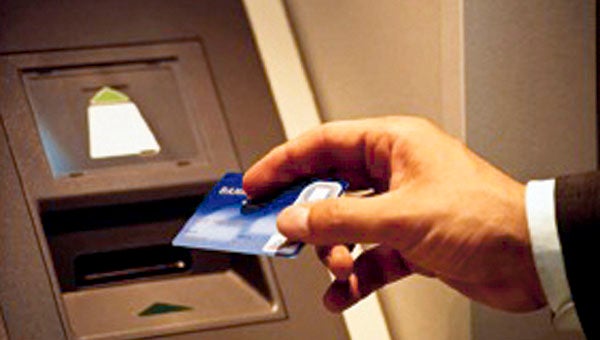By Sharlean Briggs
Do you struggle to manage your credit card balances and other debts? Don’t be too hard on yourself; you are in the same situation as thousands of others.
By making the decision to change your money habits, it is possible to make your debt manageable in the New Year.
Use these simple tips to regaining control of your finances.
Tip 1: Just say no to cash advances
Cash advances on credit cards are a bad idea. Credit card companies send checks in the mail as often as once a week and encourage customers to use them to pay bills or treat yourself to something nice, but only in the fine print do they mention that these checks are considered a cash advance.
Taking a cash advance is a bad idea because you start accruing interest the minute you take the money, and unlike credit card purchases, there is often no grace period.
Additionally, you are charged an automatic fee, usually around 2–4 percent on the amount of the cash advance, in addition to a higher interest rate than the other purchases on your credit card.
The credit card company often won’t consider the cash advance to be paid off until you’ve paid off your balance for your other purchases.
Tip 2: Pay more than the minimum monthly balance
It is tempting to pay the minimum monthly payment on credit card payments. Don’t do it! Not only will it take forever to pay off your credit card bill, but the interest rates that credit card companies charge will actually keep your bill growing faster than you are paying. Instead of paying the minimum payment, make as large a payment as you can afford. When and where possible, reduce spending in other areas and focus on paying off credit card debt.
It may not feel like it but you will be saving money when you increase your credit card payments.
Depending on the interest rate on your credit card, you are saving an average of 10–29 percent per year in interest on any balance that you manage to get off your cards.
That means if you pay off an extra $1,000 this year, you’re actually saving yourself $160 to $290 in interest that you would have paid.
If you are in debt, freeing up this extra money can start to give you control of your finances. Whether you use this money to accelerate your debt, start an emergency fund or invest in your retirement, the power of interest and compounding interest can start working for you instead of against you.
Tip 3: Be wary of credit card rewards
You can earn credit card rewards from using your credit cards.
While a nice bonus, they are worth far less than the interest you accrue if you do not pay off the money you spend to earn such perks.
Often the purchases come out to a reward of 2 percent or less. Therefore, if you receive one point for each dollar that you spend, it is probably not worthwhile to incur the interest charge for such a small reward.
Additionally, avoid signing up for multiple credit cards, regardless of the bonuses they offer. If you already know that you don’t manage credit cards well, don’t give yourself more temptation in the form of more cards.
It’s also easier to miss a payment when you have more cards than you can comfortably keep track of, and a few $39 late fees will quickly obliterate any $100 gift card you may have received when you applied.
Tip 4: Do not ignore your debt
Some become so stressed or embarrassed by their credit card debt that they stop opening their bills and try to pretend that the problem doesn’t exist.
While this may appear to work for a while, it’s a terrible approach.
While you’re ignoring your bills, interest rates are causing the balance you owe to grow every day. In fact, if you miss a payment, your interest rate may increase under the terms of your credit card agreement.
Not paying your bills on time also has a detrimental effect on your credit score. Thirty-five percent of your credit score comes from how you pay your debts and if you pay on time.
Instead, call each of your credit cards and ask to renegotiate the terms of your agreement. Sometimes you can get your interest rate lowered, or you may be able to set up a payment plan that will allow you to pay off your debt, all with a simple phone call.
Ignoring your debt can also spur debt collectors into action and you do not want to do anything that might put you on their radar.
Finally, don’t let embarrassment prevent you from taking action; some of the people you know have at least as much debt as you do.
Managing credit card and other debt takes time, effort and self-control.
These tips will help you control your cards and other debt instead of letting them control you. There’s no reason that debt can’t be a helpful, convenient tool—assuming you can learn to use it sensibly and responsibly.
Sharlean Briggs, Regional Extension Agent for Consumer Science and Personal Financial Management with the Alabama Cooperative Extension System, will offer budgeting workshops and estate planning workshops in Chilton County in 2014. She can be contacted at szb0031@aces.edu or by calling (205) 280-6268.

